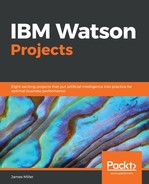As we said, we'll keep this first project example quite simple by focusing more on concepts and fundamentals, rather than spending time defining and exploring every detail (that will come in subsequent chapters!).
Let's start with some background. Suppose there is a group providing state-wide transportation services. This group originally began with a single driver, a car, and a van. Over time, the owner sold out to a group of investors who have evolved the company, now employing a large team of professional drivers and offering a full range of (driving) services for individuals and specific events, with vehicles chosen from an inventory of specialized vehicles. The owners are enjoying a steady business but not, unfortunately, steady profits. What can be done?
From the beginning, drivers had to log all information about each trip and submit that information to the main office to be paid and reimbursed for expenses. The information required by the drivers included dates, locations, events (types), customers (types), the kind of vehicle used, customer feedback, payment information, notes on any issues encountered, and so on. Since all of this information was required to be submitted before drivers received any payment, the information is believed to be complete and pretty reliable.
The investors are considering restructuring the business in an attempt to be more profitable, but a casual review of the trip reports doesn't seem to make sense.
For example, it would seem that the larger engagements—those that the company charges more for—should always be more profitable; however that doesn't seem to always be the case. In addition, some trips seem to be fraught with issues and some never are, customer satisfaction isn't predictable, some vehicles seem to always be requested while others seldom are, and the expected vehicle choices—based upon event type, locations, and so on—aren't always the ones used.
Even though having results (the number of trips, total sales, total costs, and so on) broken down in a variety of ways (event type, vehicle type, location, and so on)—is helpful, it falls short in answering questions such as:
- When there are unplanned events (such as weather delays, mechanical failures, re-routing, and so on) that occur during a trip, they can still be profitable, but usually affect the original expected outcome. On what types of trip or under what types of scenario might these problems be expected to occur? As an example, do they happen more on trips that span 24 hours (overnight)?
- Customer satisfaction and tip levels—what can be expected in terms of a gratuity offered as a tip, based upon the event or run? Do corporate events or trips with multiple destinations result in better tips (implying higher satisfaction)?
- Could there be any correlation between the type of event and type of vehicle used? Do certain events demand a certain type of vehicle? Does the vehicle type influence the profitability of the trip?
These kinds of investigation are more cognitive in nature rather than the result of an aggregation, summary, or calculation. That being said, IBM Watson Analytics can be quite helpful.
